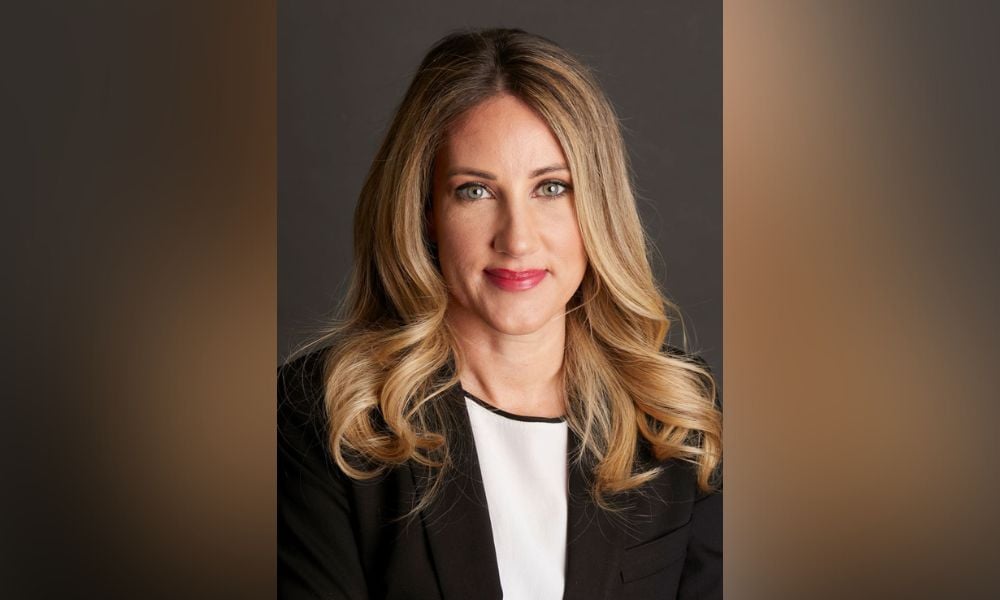Edward Jones poll highlights financial pressures across different groups, and what advisors can do to help address needs

As uncertainty over the future direction of interest rates, prospects of recession, and the easing of inflationary pressures reigns over Canada’s economic landscape, new polling data from Edward Jones reveals Canadians are going through a state of psychological calamity over their finances.
Delving into the link between Canadians’ finances and their well-being, it found nine in 10 (88%) Canadians feel their finances are exacting a toll on their overall well-being, including one-third who said they feel a strong impact.
That trend is hardly surprising to Julie Petrera, senior strategist for Client Needs with Edward Jones Canada, as it speaks to the heightened difficulties Canadians today face in balancing different priorities.
“When we think about financial decisions, in many cases, those involve tradeoffs,” says Petrera. “These are decisions where people ask themselves ‘What should I do? When should I do it? How should I do it?’”
Higher costs, higher choice anxiety
In one example of the financial dilemmas Canadians face, around two thirds of those surveyed said they feel concerned about the long-term challenge of saving for retirement (65%). However, roughly the same number were worried about being financially prepared for unexpected situations (63%).
According to Petrera, the poll also highlights several other key decision areas including saving for retirement – a priority for two thirds (65%) of the poll participants – and education. In a time of high inflation and soaring costs generally, Petrera says the question of how much to save takes on greater urgency.
As Canada confronts a future of potentially higher-for-longer interest rates, she says questions around mortgage payments and paying off credit card debt have taken on greater significance.
“Many Canadians are asking ‘What should I pay off first? Should I lock into a fixed-rate mortgage at this time or wait and hope rates will come down?’” she says.
More women under pressure
For over half of Canadians polled by Edward Jones (54%), making financial decisions can be an overwhelming experience. But a deeper look at the stats reveals that feeling isn’t spread evenly across the population.
According to the survey, women feel significantly more financial pressure than men (60% and 40%, respectively). That disproportionate weight on women, Petrera says, could come down to several major factors.
“We know that women continue to earn less than men, so rising prices from inflation hit them harder,” she says. “Women also live longer than men … They are likely to have a longer retirement, which means they probably have to build up a bigger nest egg.
“Women are also, in many cases, the financial decision makers in their households. So because they're facing the decision, they might be feeling the stress or pressure of having to make these decisions around debt and saving and planning,” she adds.
Beyond that, there’s a large body of research to show women are more risk-averse and tend to have lower financial confidence than mean. That means when faced with a financial decision, they may feel more pressure to make the right financial choice compared to men, who would tend to assign less risk around the same decision.
Canadians trust in advice – but only a few are getting it
While three-fifths of Canadians believe working with an advisor would help ease the stresses of dealing with their personal finances, just one third (33%) said they currently work with one. That gap widens among younger Canadians, with only 20% having an advisor even though 68% believe a financial advisor could help them.
“I think there is a misperception that advisors focus on investment advice and retirement planning. And this younger cohort may feel like there's a disconnect between what advisors do and what their priorities are right now,” Petrera says.
The demographic divide in financial priorities bears out in Edward Jones’s new poll. It revealed younger adult Canadians – respondents under 35 years – were more concerned with homeownership (71%), wiping out their credit card debt (50%), and saving for education (48%) than older participants (47%, 43%, and 26%, respectively).
“Comprehensive planning and advice, which is what we focus on at Edward Jones, includes so much more than just investments and retirement planning. It includes debt repayment, helping save for a home and budgeting,” Petrera says. “Every conversation begins with the advisor uncovering the client priorities, helping them articulate their unique personal goal. And then working with them to achieve their specific goals, whatever those goals are at whatever stage of life they're in.”
The survey also underscores the benefits of working with a financial advisor. Compared to those without one, respondents who receive advice were less prone to feeling overwhelmed by financial decisions (45%, compared to 59% who don’t); more confident in their financial decision-making ability (89%, vs. 82%); and less concerned about financial topics including credit card debt, saving for a home, and saving for retirement.
Three fifths (60%) of Canadians also agreed that working with a financial advisor would help relieve the stress of dealing with their personal finances. Those findings, Petrera argues, highlight an opportunity for financial advisors to clearly articulate their value.
“It’s clear that Canadians need help; they just don't know where to get it. So as advisors, as an industry, we want Canadians to know that we understand this and we can help at every juncture,” she says. “We’re committed to understanding our clients and their families, determining what their unique priorities are, and providing personalized planning and advice to help reduce those feelings of being overwhelmed.”



